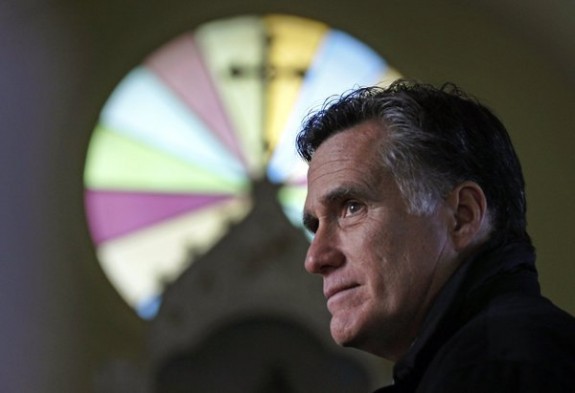Laurie Goodstein takes a closer look at what happened Tuesday, and finds some interesting analysis:
Christian conservatives, for more than two decades a pivotal force in U.S. politics, are grappling with Election Day results that repudiated their influence and suggested that the cultural tide — especially on gay issues — has shifted against them.
They are reeling not only from the loss of the presidency but from what many of them see as a rejection of their agenda. They lost fights against same-sex marriage in all four states where it was on the ballot, saw anti-abortion-rights Senate candidates defeated and two states vote to legalize marijuana for recreational use.
It is not as though they did not put up a fight; they went all out as never before: The Rev. Billy Graham dropped any pretense of nonpartisanship and all but endorsed Mitt Romney for president. Roman Catholic bishops denounced President Barack Obama’s policies as a threat to life, religious liberty and the traditional nuclear family. Ralph Reed’s Faith and Freedom Coalition distributed more voter guides in churches and contacted more homes by mail and phone than ever before.
”Millions of American evangelicals are absolutely shocked by not just the presidential election but by the entire avalanche of results that came in,” R. Albert Mohler Jr., president of the Southern Baptist Theological Seminary, in Louisville, Ky., said in an interview. “It’s not that our message — we think abortion is wrong, we think same-sex marriage is wrong — didn’t get out. It did get out.”…
[snip]
…The Christian right should have a natural inroad with Hispanics. The vast majority of Hispanics are evangelical or Catholic, and many of those are religious conservatives opposed to same-sex marriage and abortion. And yet, the pressing issue of immigration trumped religion, and Obama won the Hispanic vote by 44 percentage points.
“Latino Protestants were almost as inclined to vote for Mr. Obama as their Catholic brethren were,” said Guth, at Furman, “and that’s certainly a big change, and going the wrong direction as far as Republicans are concerned.”
The election outcome was also sobering news for Catholic bishops, who this year spoke out on politics more forcefully and more explicitly than ever before, some experts said. The bishops and Catholic conservative groups helped lead the fight against same-sex marriage in the four states where that issue was on the ballot. Nationwide, they undertook a campaign that accused Obama of undermining religious liberty, redoubling their efforts when a provision in the health care overhaul required most employers to provide coverage for contraception.
Despite this, Obama retained the Catholic vote, 50 to 48 percent, according to exit polls, although his support slipped from four years ago. Also, solid majorities of Catholics supported same-sex marriage, said Jones, the pollster.
Bishop Jaime Soto of Sacramento, Calif., who serves on the bishops’ domestic policy committee, said that the bishops spoke out on many issues, including immigration and poverty, but got media attention only when they talked about abortion, same-sex marriage and religious liberty. Voters who identify as Catholic but do not attend Mass on Sunday may not have been listening, he said, but Catholics who attend Mass probably “weigh what the church has to say.”
”Good Catholics can be found across the political spectrum,” Soto said, “but I do think they wrestle with what the church teaches.”











